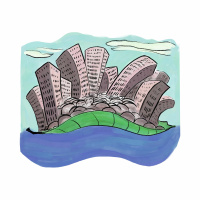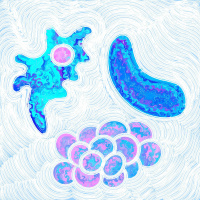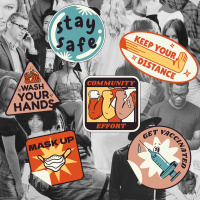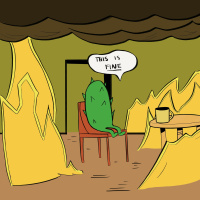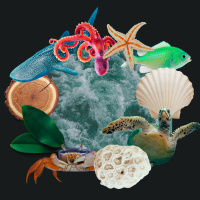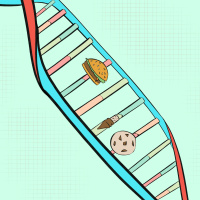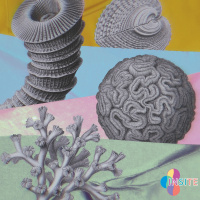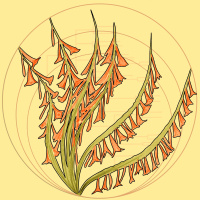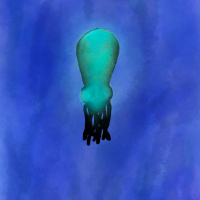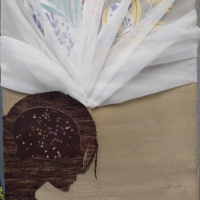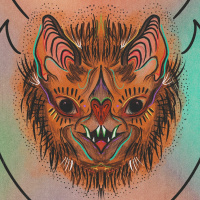Sinopsis
RadioBio is a podcast where UC Merced biology graduate students talk with seminar speakers for 30-45 minutes. Topics in biology will range widely, from molecules to ecosystems. Our target audience is anyone interested in science and biological research.
Episodios
-
Dr. Zackary Graham: Crayfish, Crawfish & Crawdads
17/12/2025 Duración: 52minListen in as we talk to Dr. Zackary Graham about his upcoming book, Crayfish, Crawfish & Crawdads: The Biology and Conservation of North America’s Favorite Crustaceans, out January 6th. We dive into how this diverse group of arthropods makes a living and learn about some interesting life history traits such as burrowing and communication.
-
Dr. Anya Brown: Coral, Seaweed, and Bacteria, Oh My!
10/12/2025 Duración: 36minToday we talk to Dr. Anya Brown about her research studying the impacts of microbial communities on seaweeds and corals. Learn about how rich diverse ecosystems can survive and thrive in nutrient poor waters. This podcast was recorded in Spring 2024.
-
Dr. Jonelle Basso: Rooting for Microbiomes
03/12/2025 Duración: 36minFor this episode, we sat down with Dr. Jonelle Basso, a research scientist at the Joint Genome Institute. She discussed how bacteria and viruses team up with their hosts to provide mutual benefits, and how her team uses genomic approaches to decode these underground partnerships. From computational analysis to experimental work, discover how scientists are unraveling the complex relationships between plants and their microbial allies. This episode was recorded in Spring of 2024. Some information discussed may have changed since the recording date.
-
Dr. Emma Wilson: Brain Parasites, Cats, and Their Relationships With Humans
19/11/2025 Duración: 29minToday on RadioBio, we talk with Dr. Emma Wilson about Toxoplasma, a microscopic parasite that makes mice love the smell of cat pee, can live in your brain forever, and might just make you more likely to take risks. This podcast was recorded in Fall 2022.
-
Dr. Spencer Nyholm: Squids that Light Up the Night and How They Protect Their Eggs
22/10/2025 Duración: 41minWe chat with Dr. Spencer Nyholm about the symbiotic relationship between the Hawaiian Bobtail Squid and the bioluminescent bacteria Vibrio fischeri (now called Aliivibrio fischeri), and how they use bacteria to protect their eggs. If you liked our interview with Dr. Nishiguchi, you'll also love this episode!
-
Dr. Catalina Cuellar-Gempeler: Leaves Like Islands
07/03/2024 Duración: 29minWe interviewed Dr. Catalina Cuellar-Gempeler, a professor of microbial ecology at Cal Poly Humboldt about her work on microbial community ecology on pitcher plants
-
Dr. Shannon Bennett: From the Field to the Museum
14/12/2023 Duración: 26minThe California academy of sciences is one of California’s oldest operating museums and research institutions. It is an invaluable repository of knowledge about the natural sciences, is home to 47 million specimens, and has hundreds of thousands of visitors per year. This week, on Radiobio, we had the privilege of speaking with Dr. Shannon Bennett, the chief and dean of sciences at the Academy. She gave us all the behind the scenes scoop about the academy of sciences, as well as her own fascinating path into science. This is Radiobio!
-
Dr. Folashade Agusto: The Math Behind Outbreaks
09/11/2023 Duración: 18minWe’ve all heard of COVID-19, saw its impact on society, and probably even faced the respiratory illness itself. But is there… math behind this disease? And if so, can we use math to help fight COVID and other infectious diseases? It turns out that our collective behavior during outbreaks can mathematically fuel models of public health. Join us as we explore the fascinating world of mathematical biology. This is RadioBio.
-
Dr. Ruben Michael Ceballos: The Shocking Truth about Heat Shock Proteins
19/10/2023 Duración: 28minImagine you are at a hot springs. The water is boiling and bubbling, there’s the smell of sulfur and other acrid chemicals in the air, and it is unbelievably hot. Is it possible that life can exist in these unforgiving conditions? It turns out yes! There are microbes, called thermophiles, that not only just exist in these conditions, but have adapted very particular ways of thriving in what are some of the most unforgiving conditions on our planet. This week, we talk to Dr. Ruben Michael Ceballos about these fascinating organisms. This is Radiobio!
-
Dr. Chrissy Hernandez: There are plenty of otoliths in the sea
06/10/2023 Duración: 31minThere are plenty of fish in the sea… this week, we take that saying to a whole new level! Fish are incredibly diverse and their life cycle is complex; this week on Radiobio we talk with Dr. Chrissy Hernandez about her research on fish population dynamics. Dr. Hernandez applies math to complicated ecosystem level questions, with fascinating results. This is Radiobio!
-
Dr. Monica Dus: You are what you eat!
21/09/2023 Duración: 23minNature versus nurture, the eternal question. We usually think of our genes as permanent, a part of our nature, something that is passed down to us and that’s it. But how much of our genes change as a results of our actions today? How much do our genes change because of what we have been eating for the past 10 years? Turns out, behaviors and the environment can actually change our gene expression! We delve into some of these factors with our fabulous guest this week, Dr. Monica Dus, a professor of neuroepigenetics at the University of Michigan. This is Radiobio!
-
Dr. Virginia Weis: Panic! At The Coral Reef
23/02/2023 Duración: 24minWe live in a microbial world. From our own gut to the corals in the ocean, microbes are key players in the existence of so many organisms. Did you know that corals are not just single organisms, but exist in symbiosis with millions of single celled algae? This symbiosis is currently threatened by global warming and climate change, resulting in a process you may be familiar with, called coral bleaching. This week, we spoke with Dr. Viriginia Weis about her timely and fascinating research on the topic of symbiosis between corals and algae. INSITE Vision: Inspire an inclusive and diverse interdisciplinary community of scientists for the conservation of biological diversity and public education in a changing world. INSITE Mission: Create novel tools to better conserve biological diversity under threat of climate change through cutting-edge research, scientific training, and public education.
-
Dr. Diane Campbell: Diversity from Adversity
10/11/2022 Duración: 28minLife finds a way. Even in the face of incredible pressure from other organisms, climate change, and pollution, species still find ways of persisting. Sometimes this pressure is too much, and populations go extinct. Why are some species able to survive, and others able to persist? How much pressure is too much pressure? And can species find ways to survive through their interactions with other species? We dive into all of these pressing questions and more with our guest this week, Dr. Diane Campbell, a distinguished professor from the University of California - Irvine. This is Radiobio!
-
Dr. Michele Nishiguchi: Ink-redible Squids
06/10/2022 Duración: 25minImagine you're a squid, yeah okay its weird but just imagine it, you are a squid swimming at night. It's a dark night except for the light from the moon, and there is a predator roaming around looking for its dinner. Now imagine you are a squid who can camouflage yourself to match the light from the moon and the stars so your shadow disappears. You trick the predator while you go on your way looking for your own dinner. Seems kind of magical right? Well that's exactly what bobtail squids do, except they get help from their bacterial friends. Today on RadioBio we talk with Dr. Michelle Nishiguichi, a professor at the University of California, Merced about glowing squids and their symbiotic sidekicks.
-
Dr. Kanaka Rajan: Computational Neuroscience
21/07/2022 Duración: 15minWe are still discovering the mysteries of the brain and one way to do that is to use tools such as computers. On this episodes of RadioBio, we speak with Dr. Kanaka Rajan, a computational neuroscientists at the Icahn School of Medicine at Mount Sinai.
-
Dr. Lauren Hale: Life Beneath Your Feet
08/04/2022 Duración: 28minHave you ever thought about the soil beneath your feet? Let's take it one step further... have you ever thought about everything that lives in the soil beneath your feet? Well, prepare yourself, because this week we interview Dr. Lauren Hale, a researcher from the US Department of Agriculture, the USDA, about her research on the soil microbiome. Dr. Hale talks about soil health, nutrient cycling, and the cutting edge of research on the microbial world living underneath our feet. This is Radiobio!
-
Dr. Ehab Abouheif: Ant Antics!
18/02/2022 Duración: 29minAnts, they are everywhere if you look for them! Ants engage in all the things that we associate with our own society, like farming and policing, and have complex social structures. This week on Radiobio, we talk to Dr. Ehab Abouheif, a professor from McGill University, about his research on cooperation in ants and the microbes that exist in symbiosis with them. This is RadioBio. link to nature paper: https://doi.org/10.1038/s41586-020-2653-6 link to deborah gordon: https://soundcloud.com/user-386034408/radiobio-interviews-dr-deborah-gordon?si=49cba8aa279942e9beec58588e983a24&utm_source=clipboard&utm_medium=text&utm_campaign=social_sharing
-
Dr. Mary K Salcedo: Expanding Wings
04/02/2022 Duración: 30minThis week on RadioBio, we explore insect wings. Did you know insect wings are more than just beautiful appendages? They are a part of an amazing circulatory network. We discuss the biomechanics of insect wings and what makes them so amazing with Dr. Mary Salcedo, a postdoc at Virginia Tech. Link to Dr. Salcedo's Review: https://doi.org/10.1093/icb/icaa124 Link to Dr. Salcedo's Website: https://www.maryksalcedo.com
-
Dr. Amelia Lindsey: The Microbial World (with Wolbachia)
13/12/2021 Duración: 25minWhat if I were to tell you that you had hundreds, if not thousands of microbes living on you hands, you would probably respond with ewwwwww...gross and immediately want to sanitize or wash our hands. If I were to tell you that not all of them are bad, but rather most of them are good, you might still be skeptical. Let’s take it one step further. What if I told you that we can use naturally occurring bacteria as a form of pest control. Wild right! One of these bacteria is Wolbachia. Wolbachia affects the reproductive system in certain insects and can make them sterile. The cool part is that Wolbachia do not affect humans or other large invertebrates, but it does infect many insects that we classify as pests. Today we explore the world of Wolbachia and learn about how these little bacteria can kick some insect pest butt with Dr. Amelia Lindsay......This is RadioBio!
-
Dr. Alexa Sadier: Fantastic Bats and Where They Live
14/11/2021 Duración: 29minBats are vital for maintaining balance in the ecosystems they are a part of: Bats keep insect populations in check, pollinate flowers, and disperse seeds. Bats are also an incredibly diverse group of species that come in all shapes and sizes! Did you know, that if you randomly picked a mammal, you would have a one in five chance of picking a bat? Today we have Dr. Alexa Sadier with us to talk about what studying bats can teach us about evolution.






